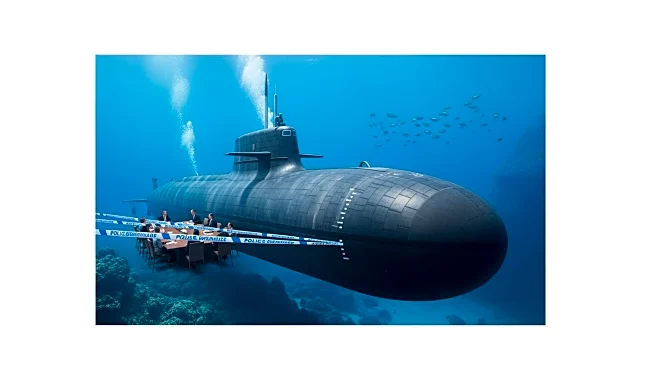What's Happening?
The Russian military has deployed a naval task group to the South China Sea, a region marked by unresolved sovereignty disputes. This deployment is part of a broader Asia-Pacific mission that began in October, with the Russian naval flotilla visiting
several Southeast Asian nations. The task group, which includes the frigate Marshal Shaposhnikov, the corvette Gremyashchy, and the large sea tanker Boris Butoma, recently arrived at the port of Da Nang in Vietnam for a friendly visit. This move comes amid heightened geopolitical tensions between the United States and China, both of whom are vying for influence in Southeast Asia through military drills with regional partners. The Russian presence in the South China Sea may indicate Moscow's support for China in its territorial disputes, particularly with the Philippines, a U.S. ally.
Why It's Important?
The deployment of Russian naval forces in the South China Sea underscores the complex geopolitical dynamics in the region. As the U.S. and China continue to compete for influence, Russia's involvement could shift the balance of power, potentially supporting China's territorial claims. This development is significant for U.S. foreign policy, as it may challenge American efforts to maintain influence in Southeast Asia. Additionally, Russia's actions could strengthen its diplomatic ties with regional countries, offering an alternative to Western alliances. The situation also highlights the broader implications of Russia's military presence in the Pacific, despite its ongoing conflict in Ukraine.
What's Next?
The Russian naval task group is expected to continue its Asia-Pacific deployment after concluding its visit to Vietnam. This ongoing presence may lead to further diplomatic engagements with Southeast Asian nations, potentially enhancing Russia's influence in the region. As the U.S. and China continue their military activities, regional countries may face increased pressure to align with one of the major powers. The situation could also prompt discussions on maritime security and territorial sovereignty, with potential impacts on international relations and trade routes.
Beyond the Headlines
Russia's deployment in the South China Sea may have deeper implications for global maritime security and international law. The presence of Russian forces could influence the strategic calculations of other countries with claims in the region, such as Vietnam and the Philippines. Additionally, the deployment may affect the perception of Russia in Southeast Asia, where it is generally viewed positively compared to Western nations. This could lead to shifts in regional alliances and economic partnerships, particularly in areas like shipbuilding and maritime infrastructure.















